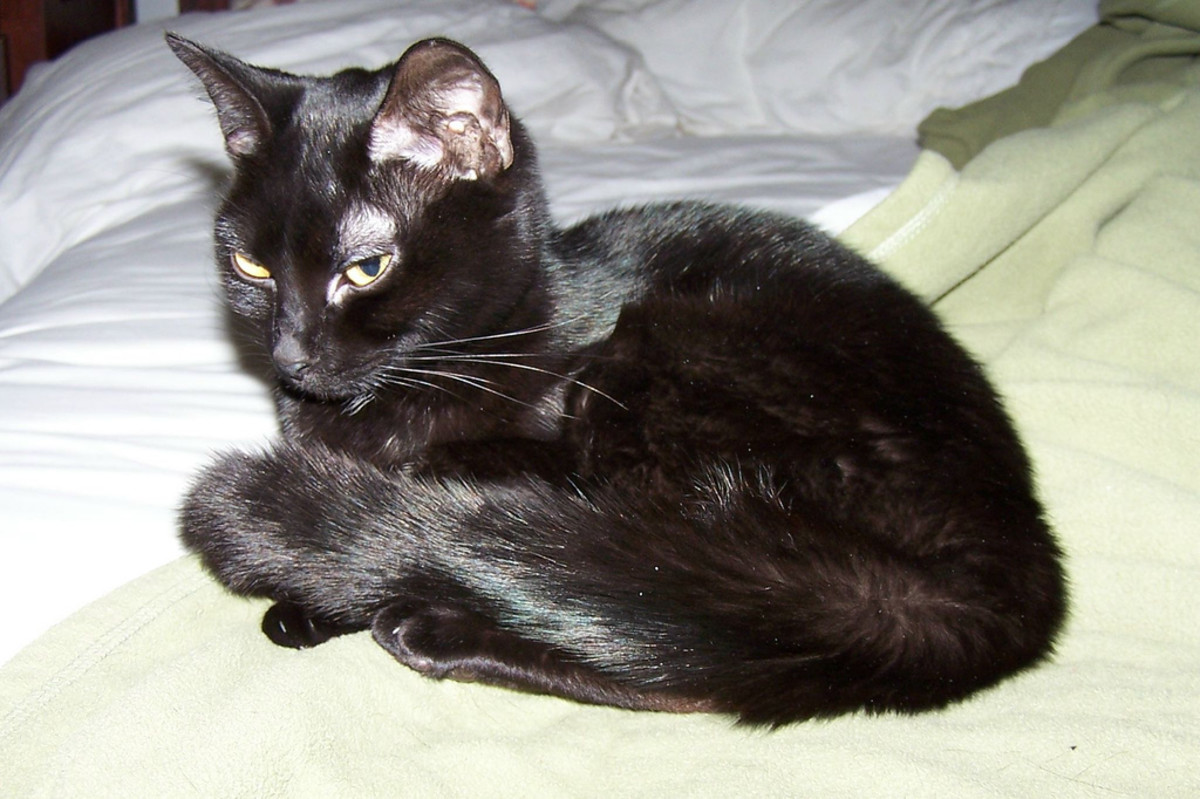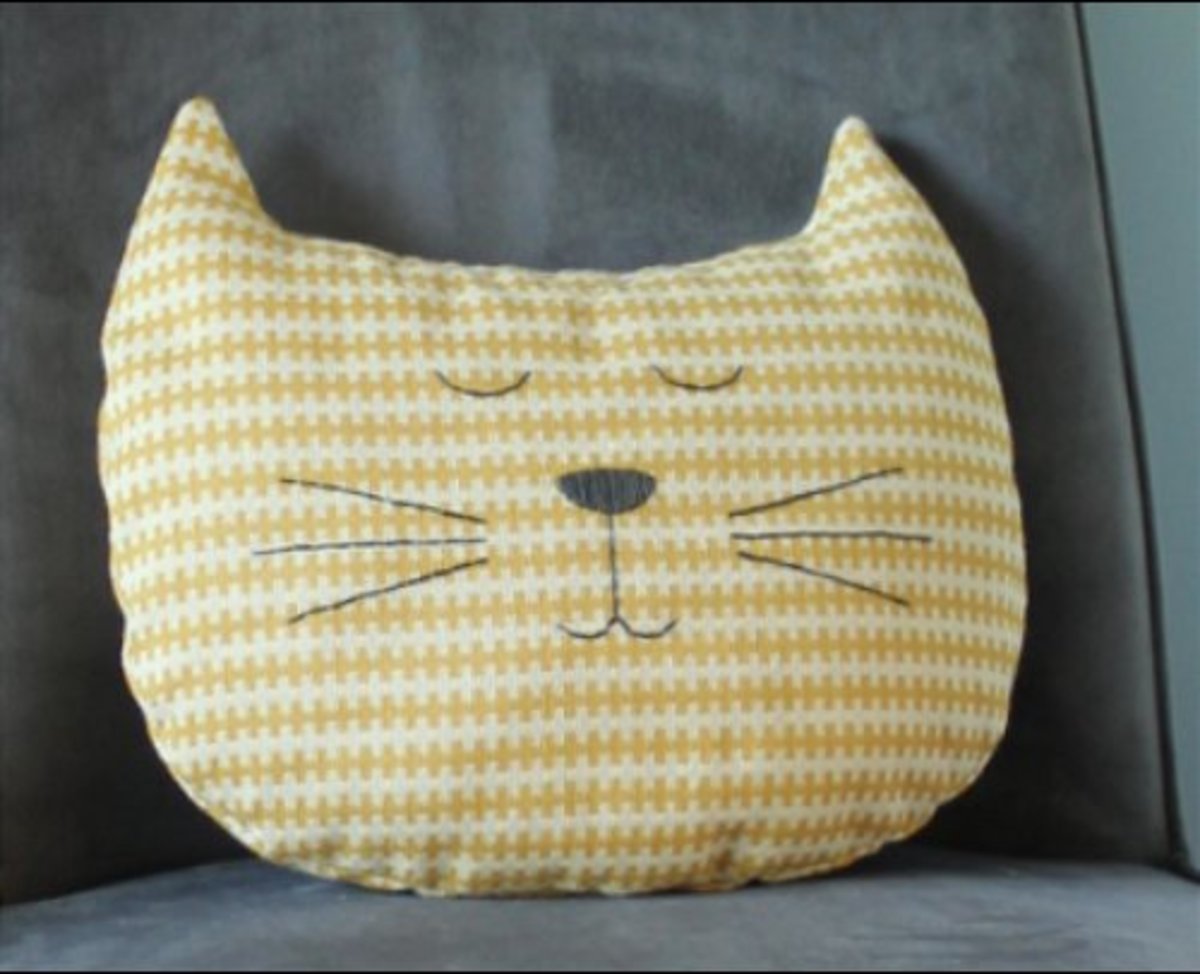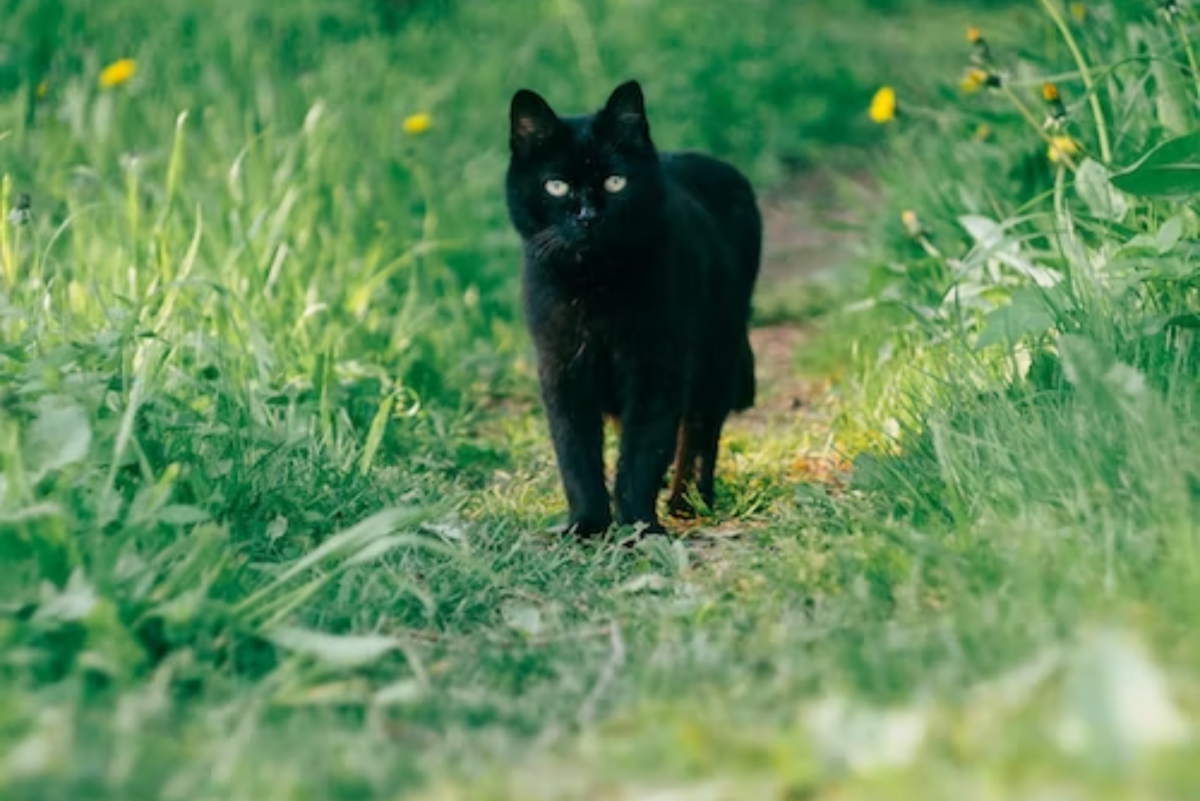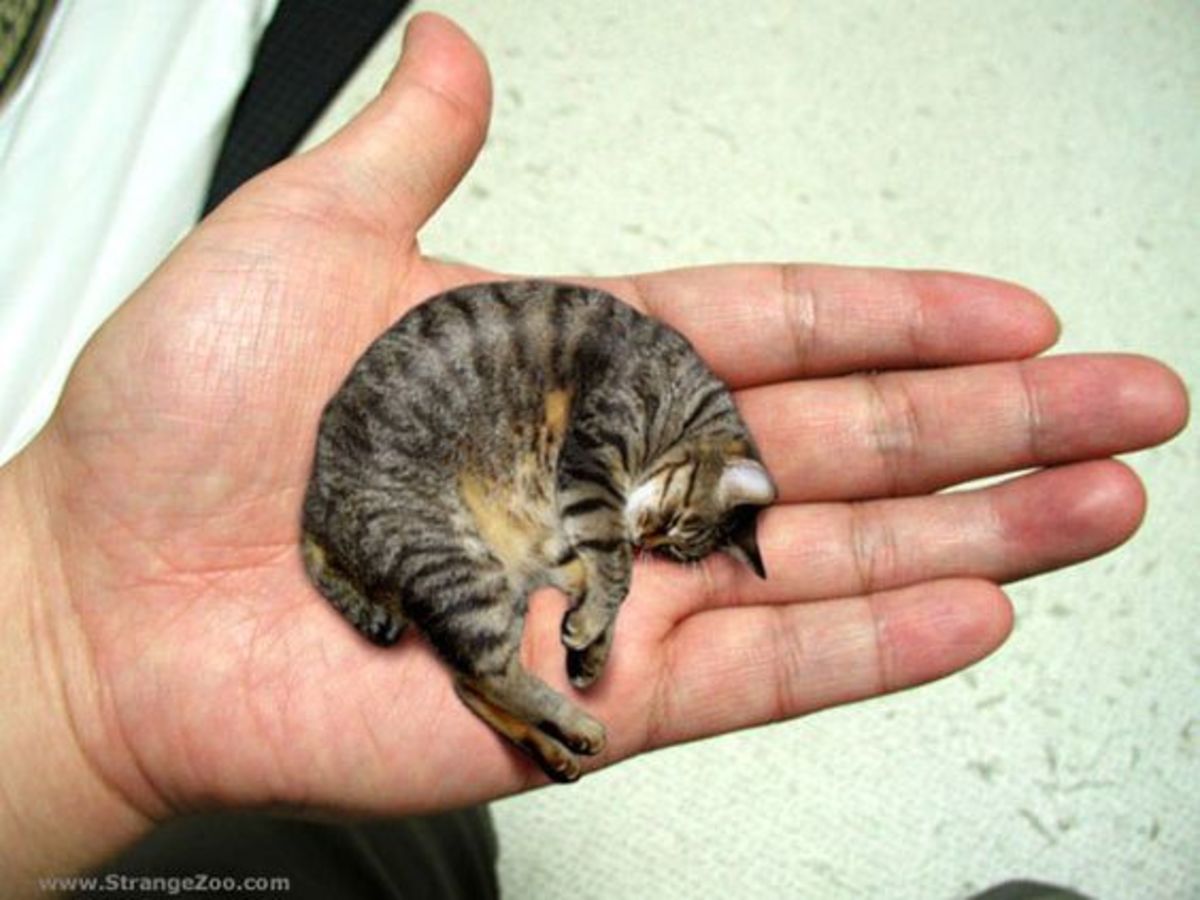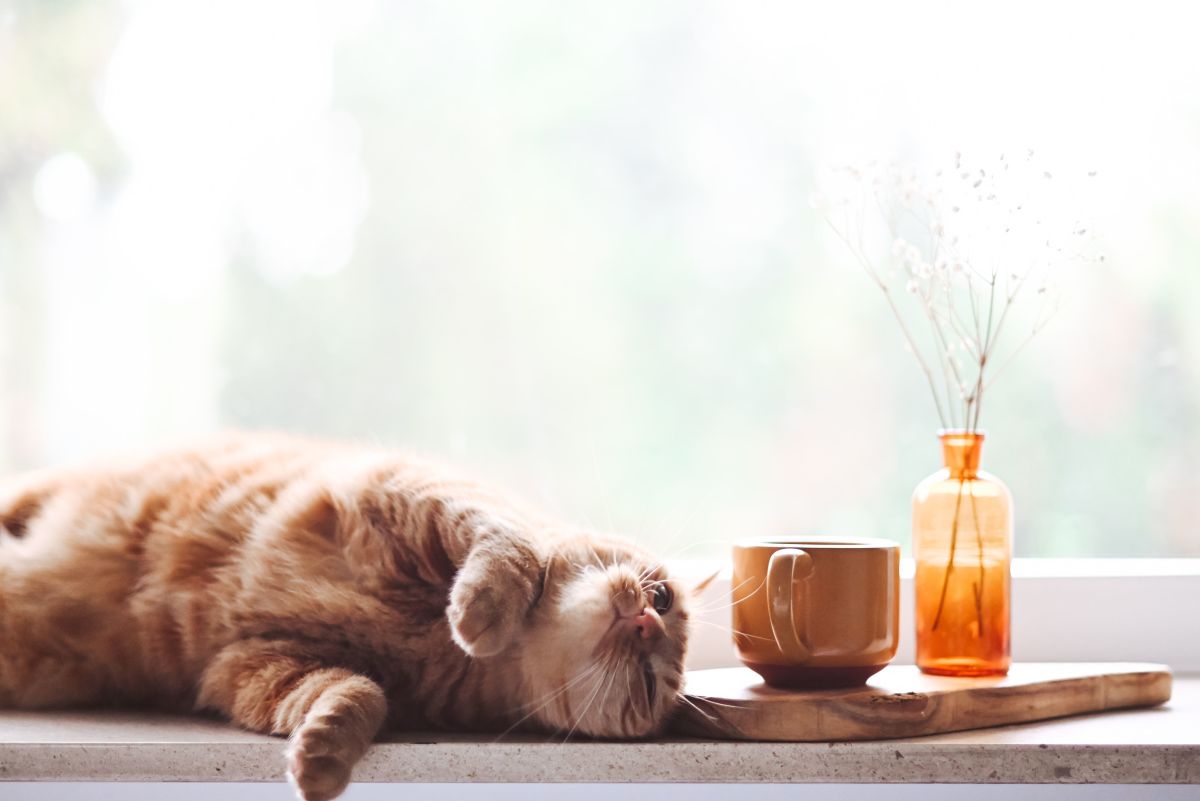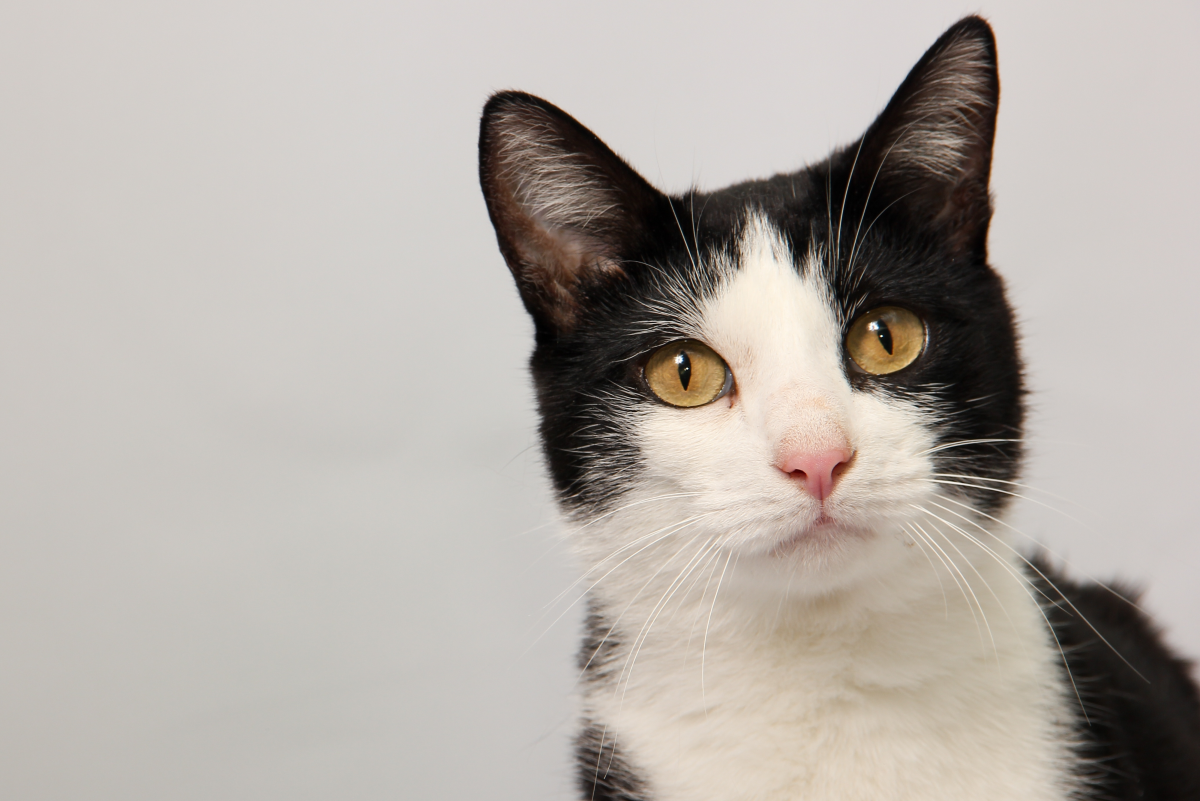The Marvelous Mystery of Black Cats
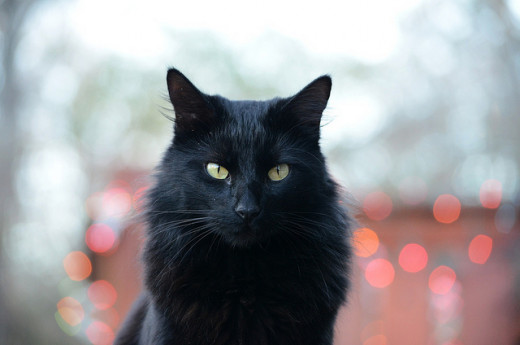
Black cats seem forever interlinked with all things mystical and mysterious. Throughout history they have shared varying degrees of reverence and fear. Long before they became one of the most iconic symbols of the dark, playful holiday of Halloween, they enjoyed a rich, albeit superstitious, history.
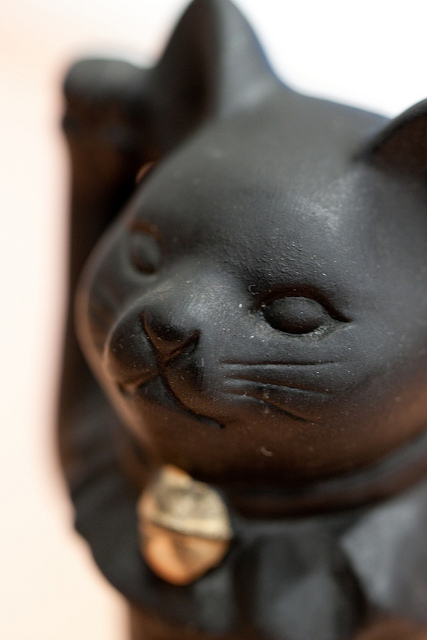
Good Luck or Bad Luck? (It depends on who you ask.)
The Good
Almost everyone has heard that the Ancient Egyptians worshiped cats. Indeed, the iconic image of the goddess Bastet is often represented as a black cat. Bastet was considered to be a protective deity, who had her own cult of followers as well as a popular yearly festival in her name called Bubastis. However, the Egyptians were not the only ones to revere black cats.
In Japan, black cats are seen as especially good luck for single women, as they can attract suitors. Outside of playing Cupid, the popular lucky charm of the Maneki-neko (also known as "beckoning cat") is commonly depicted as a black cat. The charm, with right paw raised, is thought to bring prosperity and luck to its owner. When the left paw is raised, it is a symbol of welcoming to outside visitors. Some figurines even have both paws raised, both welcoming luck and new friends.
Sailors often kept black cats aboard their ships as they were believed to have the power to influence the weather. Some wives of sailors also kept black cats in the home to bring good fortune to their families and to keep their husbands safe while out at sea.
These are only a few of the many depictions of the black cat as a bringer of good luck. Unfortunately, there are many negative superstitions surrounding them as well.
The Bad
In Celtic Scotland, there existed a belief in a negative black cat spirit called Cat Sith. It was thought that Cat Sith would steal the souls of the dead. Celtic peoples would employ any number of tricks and treats to keep the cat entertained so that it would not steal the soul from a corpse before it could be buried. Cat Sith is also one of the first associations of black cats with witchcraft, as some believed that it was actually a witch who had transformed into a cat. The witch could transform into a black cat only nine times, whereupon the ninth time they would remain a cat forever.
Another black cat spirit with a bad reputation was the Ovinnik. A being from Slavic folklore, the Ovinnik would enter the grain storage houses of peasants and burn them down. To appease this mischievous spirit, people would offer him food throughout the year. If pleased with the offerings, the Ovinnik would leave the peasants alone, sometimes even blessing them with good fortune. If dissatisfied, however, it would wreak havoc upon the residents for the rest of the year.
Black cats saw the height of their negative reputation in Europe during the Middle Ages. Seen as possible causes of the Black Plague, they were exterminated by the thousands. They were unfortunately also associated with dark magic and demonic spirits. By the sixteenth century, black cats were seen as creatures who were under the employ of Satan, working with witches to spread evil across the world. These associations continued into the New World, where the infamous Witch Trials took place in Puritanical territories such as Massachusetts.
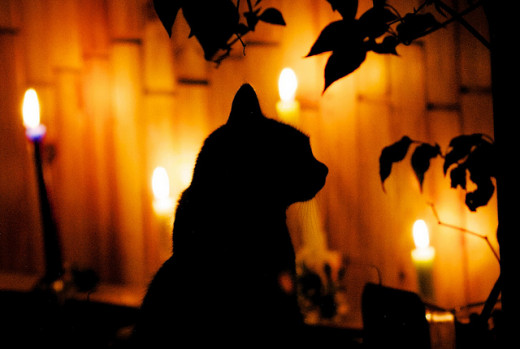
Black Cats and Modern Witchcraft
"Eight words the Wiccan Rede fulfill, An it harm none do what ye will."
- The Wiccan Rede, Doreen Valiente, 1964
While hundreds of years ago black cats association with witchcraft and black magic were misguided at best, some modern practitioners of Neo-Paganism and Wicca do enjoy keeping black cats as pets. These spiritual faiths tend to focus on reviving ancient practices that were overtaken by dominant religions such as Christianity. They focus wholly on a spiritual connection with nature, as did many pagan traditions in the past.
Just as ancient Egyptian and Celtic peoples believed that black cats possessed spiritual power, so too do many modern witches believe black cats help to amplify their natural spiritual energy. This is not specifically a "dark" or "evil" energy, but just a natural phenomenon that exists in all things. In fact. the color black is often associated with reversing negative energy, turning it into a positive force.
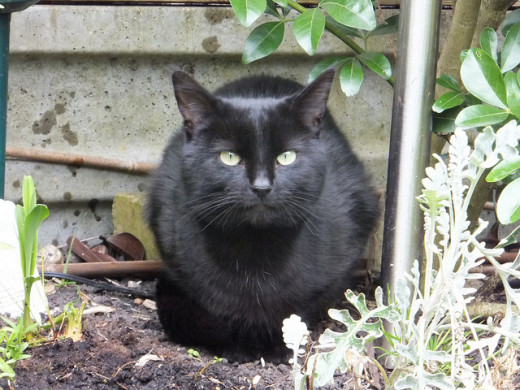
Abuse and Neglect of Black Cats
Unfortunately, the actions of some misguided individuals have led to some serious instances of abuse, neglect, and even deaths of black cats. While the evidence of "sacrifice" of black cats for "Satanic" rituals is scant, there have been some cases of people who still believe in negative superstitions murdering black cats just for existing.
That's not all. Shelters across the United States have imposed "No Black Cat" adoption periods around Halloween. This is not just to protect the cats from potential violence, but also to save them from possible neglect after the holiday. Some adopt the cats as merely objects of decoration, maybe for a party, then decide to bring them back to the shelter, or worse, abandon them elsewhere.
According to BlackCatRescue.com, all of these factors have contributed to the fact that black cats are half as likely to be adopted as cats of any other color.
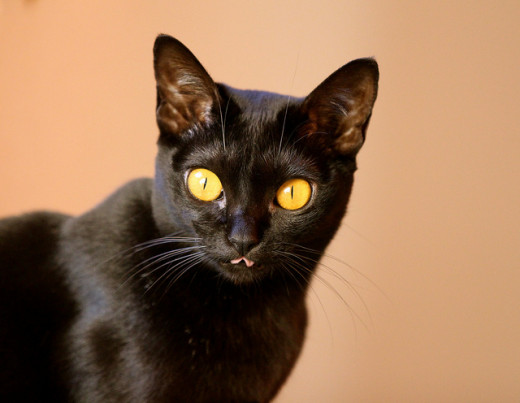
Science Over Superstition
There are 22 breeds of cat that are recognized by the Cat Fancier's Association as breeds that can have solid black fur. Each breed has its own general temperament that helps to determine their personality. This means that black cats can be just as diverse as any other group of cats.
The Bombay is the most commonly thought of breed of black cat, with sleek black fur and bright, curious eyes. They are playful, loving companions, who enjoy human contact and even get along well with dogs. (Far from the stereotypical image of a hissing, arched, claw-barred feral monster that graces so many Halloween decorations!)
Other breeds that can have full-black coats include the patient, intelligent American Bobtail, the lively Manx, and affectionate, quiet Siberian. There are plenty more, of course, ranging not only in personality, but coat and dietary needs. There is virtually a breed of black cat to suit the desires of every potential cat-owner out there.
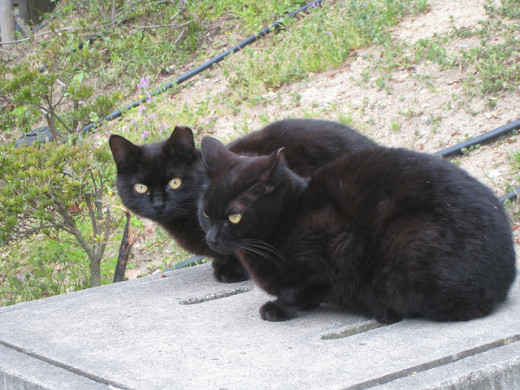
In conclusion, black cats have a long, sometimes troubled history. The misfortune of hearsay and superstition has left an undeniable scar against their reputation, one that to this day has not been able to heal. They are indeed magical, in that they have managed to permeate throughout human culture for thousands of years. But they are not evil, nor are they bad omens. In fact, the only unfortunate ones seems to be themselves. So, the next time you visit your local shelter to rescue a feline friend, consider adopting a black cat. It's about time their luck changed.
Test Your Black Cat Trivia Knowledge!
view quiz statisticsResources
- Black Cat Month - the Perils of Halloween
Halloween is fun, but it also brings out sadistic people who would love nothing better than to get their hands on your cat. Make Black Cat month safe for your cat, no matter what its color. - Black Cat Breeds and History
Throughout history, black cats have brought luck — both good and bad — to all types of cat owners. (Contains a listing of all 22 CFA-recognized black cat breeds.) - Black Cat Rescue
Black Cat Rescue is a No Kill cat rescue organization in Boston, MA.
© 2014 JJ Heathcoat

